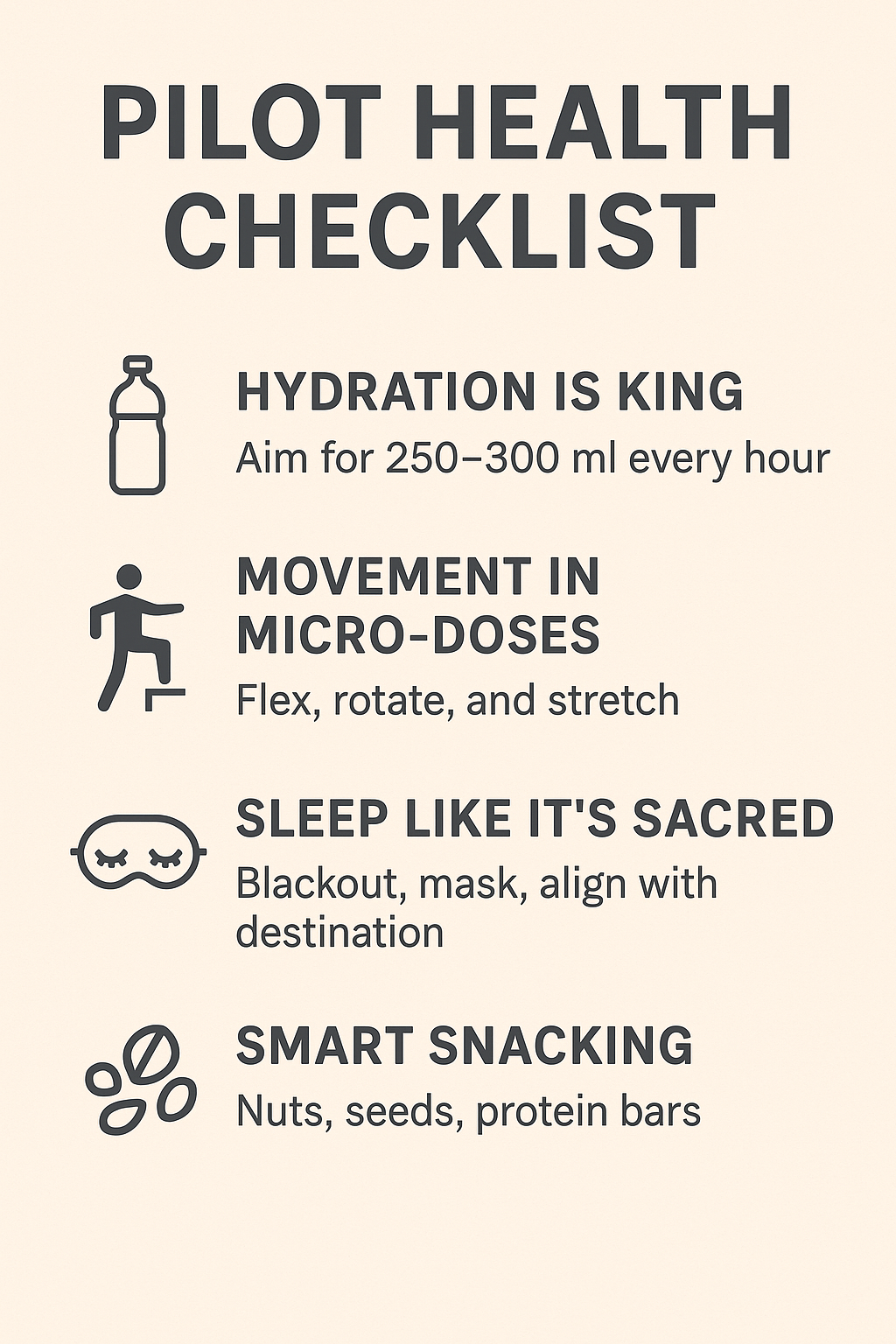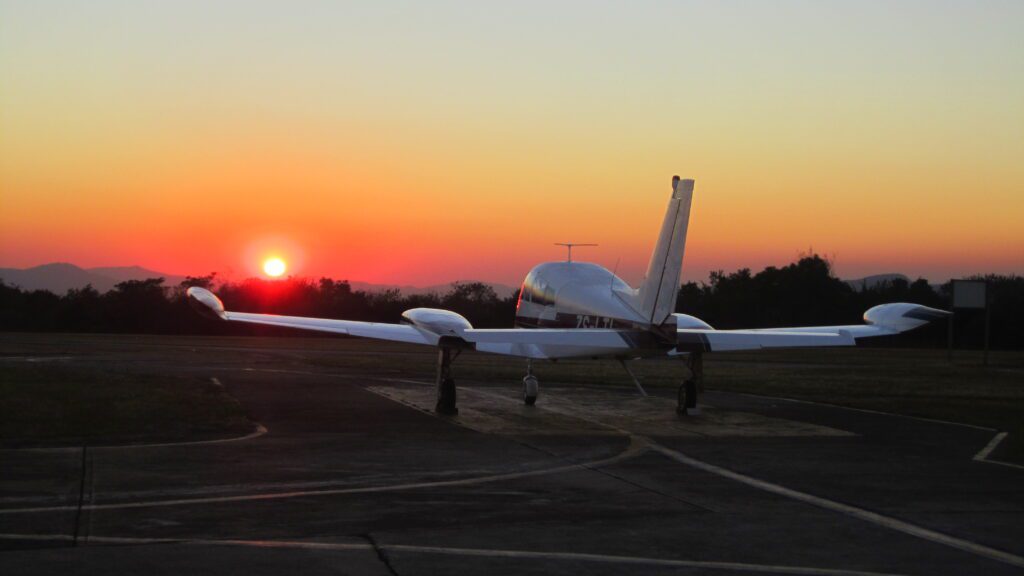Flying an aircraft isn’t just about handling controls and navigating skies. It’s about managing your body and mind under some of the most unique working conditions on the planet. Long hours in a pressurized metal tube takes it’s toll on pilot health.
Most people today do not even realise the importance nor the implications about this subject on pilot health. Be it physical or mental health, this is the dark truth about being a pilot. I’ve been flying for almost 2 decades now and with an airline for over 6 years, and in this time I’ve had conversations with so many pilots flying different aircrafts for corporates, flight schools and the airlines – in India and other countries and of different age groups. So from these conversations, personal experience and research, find out why most pilots quietly fall apart.
Table of Contents
ToggleWhy Pilot Health Is Important
Starting with the obvious – we have a yearly medical that we must pass to continue flying. In India we do the initial, special and the regular interval medicals at Air Force stations and we do it at their, higher, standards. Many a times with ancient equipment that may have accuracy issues with the test outcomes. Of course this is not as per ICAO standards nor it’s recommendations, but nevertheless it must be passed. This adds additional pressure to be healthy and fit compared to our global counter parts.
On the same topic of medicals : in the event you are declared permanently unfit, do you have any other qualifications that can get you a job, that will pay you enough? Most pilots do not. Many are getting additional degrees today after years of having only a 10+2 qualification. Until about the mid 2010s, pilot duties were not as demanding as it is today, so many pilots back then used to have an additional business. This served as a great backup in case of a failed medical.
Along with keeping healthy physically, there is an increasing need to be mentally healthy too. Mental health is something that no one used to talk about openly until a few years ago. Even today many consider this a taboo or have trouble accepting this concept. As pilots we carry the responsibility of 100s of lives. So being in the right frame of mind, every time we step into the cockpit is so important. Wouldn’t you agree?
Many a times people do not even know they need help when it comes to mental wellbeing. Many times accepting that they need help becomes a problem in itself. There might be social stigma attached to it. There is fear of what implications it may have over their jobs or their medicals.
That’s why its important to have a good support system in place. To have good people around you that you can trust. The kind that will tell you what you need to hear and will sit and listen to what you need to say. Feelings are important. Share them. There are professional people who can help if you need it. Here’s an article from Skybrary for reference.
What we do everyday in our lives, what we choose to eat, what we choose to watch, how much we choose to sleep, what we choose to read, everything affects our health. Some physically and others mentally. I’ve made a list of things that we as pilots go through as part of our jobs and some things that we may choose to do and how it affects pilot health.
How the Sky Messes With Your Health (And The Science Behind It)
Flying is glamorous… for about 15 minutes. The rest of the time? Discipline, endurance and problem-solving under pressure. Your body wasn’t designed to be 35,000 feet high every day. Studies from the FAA and aerospace medical journals show what pilots deal with on a regular basis:
- Pressurized cabin air that’s drier than the Sahara, pulling moisture from your skin, eyes, and throat. Hydration levels drop faster in pressurized cabins because humidity averages only 10–20%.
- Posture strain from sitting in an ergonomically “meh” seat for hours without moving, leading to tight hips, weak core, compressed spine and musculoskeletal pain spikes.
- Cognitive load – constant micro-decisions that keep you mentally “ON” even after the engines shut down. Unprocessed stress due to delays, pressure from the company and ATC, last minute technical problems, inflight issues of several kind. Eventually this shows up as fatigue, irritability and burnout.
- Chronic fatigue is common due to circadian rhythm disruption. Even pilots flying short sectors report sleep debt building up over time.
- Immune suppression happens after repeated long-haul flights because sleep loss + dry cabin air + stress = a perfect storm.
- Cortisol (stress hormone) levels run higher in pilots than most high-pressure ground-based jobs.
- Noise and vibration exposure – subtle, but over years it can affect hearing and overall fatigue levels.

The Job Isn’t Just Demanding - It’s Relentless
A friend once told me: “The plane is only as safe as the pilot flying it, and the pilot is only as sharp as their body and mind let them be.”
Flying isn’t just a career. It’s an endurance sport disguised as a job. The flights may be routine, but the demands on your body and mind are anything but. Check out this article from the National Library Of Medicine as reference.
- Snacking all day – blood sugar rollercoasters lead to cravings and fat gain.
- Too much caffeine – with not enough sleep, is only masking fatigue and increasing dehydration.
- Minimal protein intake – airport meals and airline food are not real meals. These meals have a lot of baking soda and MSG added. Most pilots run on caffeine and carbs and do not get enough nutrients.
- Loneliness – you’re surrounded by people but never feel close to anyone.
- Body deterioration, the slow fade into apathy – the job looks sexy but the lifestyle beats your body down. You stop training. Stop caring. Stop prioritizing your body. This is not a dramatic shift but a subtle one.
- Not enough time for health – Chronic sleep disruption, living out of hotels, sometimes different time zones, irregular shifts, 2 AM alarms. Sleep debt builds, but you don’t feel it, until your energy, memory and hormones crash.
- Aging faster than normal – look around, its obvious! this is a job that demands everything.
The Pilot’s Survival Guide: Staying Fit
Being a pilot means you’re the last line of safety, and that requires a body and mind that can handle high-stress, high-responsibility situations. Staying healthy isn’t just about personal well-being – it’s about professional performance.
1. Hydrate Like It’s a Checklist Item – 1 liter for every 4 hours of flight time. Keep a reusable bottle in the cockpit. Avoid overloading on coffee. Yes, it keeps you awake, but it also dehydrates you. Combined with not enough sleep, it’s only masking fatigue – fix it with real sleep and deep recovery.
2. Move Every Chance You Get – If you’re cruising and the workload’s low, roll your ankles, flex your calves, do neck rotations. Off duty? Mix resistance training with mobility work – squats, planks, and hip openers will fight back pain like nothing else. Not enough time? Set a minimum 2 days a week for the gym. Sprint, walk, stretch or lift. Even 30 minutes will save you from long term damage.
3. Sleep Smarter, Not Longer – Blackout curtains, eye masks, earplugs are non-negotiable. Blackout your room and get 7-8 hours uninterrupted sleep. Get sunlight within 30 min of waking up if you can. If not then get a vitamin D supplement.
4. Eat Like You’re Fueling for Performance – Eat real meals, not constant snacks. Protein first, then vegetables then healthy fats. Avoid heavy carbs before flights – digestion slows at altitude. Eat eggs, chickpeas, chicken, edamame not just for muscle gain but for recovery. Carry at least one homecooked meal everyday. Simple meals but powerful staples, high protein and even frozen fruits. These kinds of recipes are all over the internet.
5. Build a “Post-Landing” Reset Routine – When the headset comes off, your brain still thinks it’s in flight. Take 15 minutes for deep breathing, meditation or even a short walk before you head home or to your hotel room. This helps lower cortisol and improves rest quality. Have magnesium and cold water showers. This changes everything.
6. Build connections – you need a tribe. Make meaningful connections outside of flying. Make conversations that are not about flying. A hobby that helps with calming the mind.
7. Do not have the “Ill start when I get home” mindset – Your body does not care where you are. Build systems that travel with you.

Final Approach
It is not easy, I know! To be honest with you, as I always have in all my blogs, I cannot claim to do everything I have said to you above. But I try. I come home to my wife, who expects me to be a husband. I come home to ageing parents with health issues, who expect me to be a son. I come home to a 3 year old toddler and an 8 month old baby, who expect me to be their father. I have to be present mentally and physically at home just as much as the cockpit. So I try. Maybe writing this blog serves as a motivational method for me to do better.
The truth is that most people do not want to acknowledge these simple facts, but we must have conversations about these topics. We have to support and care for one another until the system does that for us. So this is my attempt to get you to think about your health and how this profession is affecting you. Make at least one change. Share this information with at least one person you feel needs it.
No one notices until its too late. Pilots are trained to power through. But your body is not an aircraft. It does not need checklists. It needs care. The best pilots don’t just stay current in the air but they stay current in life, in health, in energy, in discipline. Respect what the role takes from you: and give your body the tools to keep giving back.
These are of course just my opinions based on my experiences and gained knowledge. Differences in opinion are welcome.




